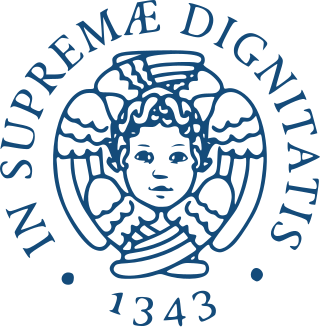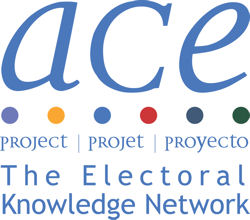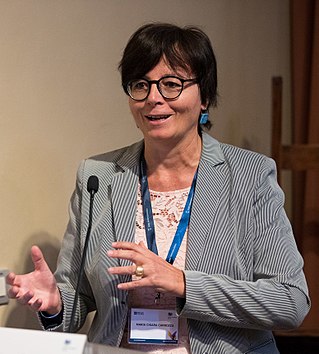
Party-list proportional representation (list-PR) is a subset of proportional representation electoral systems in which multiple candidates are elected through their position on an electoral list. They can also be used as part of mixed-member electoral systems.

Pisa is a city and comune in Tuscany, central Italy, straddling the Arno just before it empties into the Ligurian Sea. It is the capital city of the Province of Pisa. Although Pisa is known worldwide for its leaning tower, the city contains more than twenty other historic churches, several medieval palaces, and bridges across the Arno. Much of the city's architecture was financed from its history as one of the Italian maritime republics.

Giuliano Amato is an Italian politician who twice served as Prime Minister of Italy, first from 1992 to 1993 and again from 2000 to 2001. Upon Arnaldo Forlani's death in July 2023, Amato became the country's earliest-serving Prime Minister.

The University of Pisa is a public research university in Pisa, Italy. Founded in 1343, it is one of the oldest universities in Europe.

The Scuola Normale Superiore in Pisa is a public university institution in Pisa and Florence, Tuscany, Italy, currently attended by about 600 undergraduate and postgraduate (PhD) students.
The International Foundation for Electoral Systems (IFES) is an international, non-profit organisation founded in 1987. Based in Arlington, Virginia, United States, the organization assists and supports elections and electoral stakeholders. Since 1987, IFES has worked in 145 countries and has programs in more than 50 countries throughout Asia-Pacific, Africa, Eurasia, the Middle East, and North Africa, and the Americas.
The dottorato di ricerca is the highest Italian academic degree, the equivalent of a Ph.D.
The Sant'Anna School of Advanced Studies is a special-statute, highly selective public research university located in Pisa, Italy.

Higher education in Italy is mainly provided by a large and international network of public and state affiliated universities. State-run universities of Italy are under the supervision of Italian's Ministry of Education. There is also a number of private universities and state-run post-secondary educational centers providing a vocational instruction.

The Pisa University System is a network of higher education institutions in Pisa, Italy. The following three schools and universities belong to the system:
Electoral boundary delimitation is the drawing of boundaries of electoral precincts and related divisions involved in elections, such as states, counties or other municipalities. It can also be called "redistribution" and is used to prevent unbalance of population across districts. In the United States, it is called redistricting. Unbalanced or discriminatory delimitation is called "gerrymandering." Though there are no internationally agreed processes that guarantee fair delimitation, several organizations, such as the Commonwealth Secretariat, the European Union and the International Foundation for Electoral Systems (IFES) have proposed guidelines for effective delimitation.

The ACE Electoral Knowledge Network is a web portal with information on elections designed to meet the needs of people working in the electoral field.
The Italian Institute of Human Sciences, often shortened to SUM, is an Italian public university dedicated to post-graduate formation and high level research in human and social sciences. It promotes Doctoral, Post-Doctoral and Master programmes in collaboration with other Italian and European universities.

A Superior Graduate School is a completely independent institution from a legal point of view, which offers advanced training and research through university-type courses or is dedicated to teaching at graduate or post-doctoral level.
Antonio Missiroli is an Italian researcher, academic and former policymaker. He has worked for both the EU and NATO.
Polo Sant'Anna Valdera (PSAV) is a research centre of Sant'Anna School of Advanced Studies in Pisa based in Pontedera (Pisa). It was inaugurated in 2002 thanks to the interest of the then president of Piaggio Giovanni Alberto Agnelli. The property is housed in converted sheds donated by Piaggio.

IMT School for Advanced Studies Lucca is a public research institution and a graduate school located in Lucca, Italy. It was founded in 2005 under the name of IMT Institute for Advanced Studies, where the acronym IMT stands for "Institutions, Markets, Technologies". The school is part of the Italian superior graduate school system and its main Campus is located in the San Francesco Complex within the historic city walls of Lucca.

Maria Chiara Carrozza is an Italian physicist, engineer and politician who served as Minister of Education, University and Research in the government of Prime Minister Enrico Letta between April 2013 and February 2014. She has been president of the National Research Council of Italy since April 2021.
Electoral integrity refers to the fairness of the entire voting process and how well the process protects against election subversion, voter suppression, and other threats to free and fair elections. The consequences of unfree or unfair elections can include doubts in the legitimacy of the outcome, loss of faith in the democratic system, and reduced future participation.

The European Centre for Electoral Support (ECES) is a not-for-profit, private, non-partisan and independent foundation with its headquarters in the capital of Belgium, Brussels.











